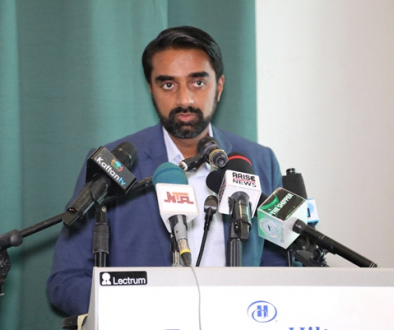Equity Before Equality by Kemi Asuni

The recent recession in Nigeria, and the continuing economic depression has had dire consequences for business. Costs of production have escalated and the demand for goods and services has reduced, coupled with higher interest and unfavourable foreign exchange rates to mention a few of the resultant effects. The populace, as a result of the recession has had to adjust in terms of spending patterns because of reduced cash flow, job losses, or had their salaries delayed. The poor have been more adversely affected. With poverty levels generally higher than before, women, children and vulnerable groups who make up the larger part of the poor in Nigeria are the most affected.
In Nigeria, about 49% of the population are female and at least half live in poverty, particularly in the rural areas. According to UNWomen (2017), empowering rural women and women in agricultural supply chain is a pre-requisite to fulfilling the vision of the UN’s Sustainable Development Goals that aim to end poverty and hunger, achieve food security and empower all women and girls.
Oxfam, in its gender interests, believes that empowering women to participate in the economy is essential to building stronger economies, achieving internationally agreed goals for development and sustainability, and improving the quality of life for all. In relation to this, Oxfam Nigeria, together with The Convention on Business Integrity (CBi) Nigeria have launched a report and a social media engagement campaign tagged “Equity First, Equality Next; Closing the Opportunity Gap for Women, 2017” to advocate equity for women based on the UN Women’s Empowerment Principles (UN WEPs) and find ways to leverage Nigeria’s female talent pool for equity in the community, workplace, and marketplace particularly for women in relevant agricultural value and supply chain of large Food and Beverage (F&B) companies, given their dominance and influence in the economy, and international leverage and to see the impact their local sourcing policies on women. Agriculture is an area where women feature as farmers and workers, largely adding value to the produce. However, there is not much recognition in terms of income or power due to gender disparities.
Gender component has become an important element in many development interventions. CBi/ Oxfam just conducted an impact assessment of an intervention project in the value chain and Agricultural supply chain of large Food and Beverage (F&B) companies in Nigeria, wherein gender sensitivity is an element.
In other words, gender equality refers to equal access to social goods, services and resources and equal opportunities in all spheres of life for both men and women. When there is gender inequality, it is women that are more likely to be disadvantaged and marginalised; for example, women are said to comprise about 50% of the labour force in Agric, however, several statistic in Nigeria has shown that revenue from women engagement in Agric scarcely goes to them due to societal norms regarding culture, tradition, religion and otherwise. Therefore gender equality is the concern of all and changes must be brought about for both men and women. However, this is not to say that men and women are equally affected by gender inequality. It remains true that women have the greater share of disadvantages.
Based on the foregoing, it is imperative for manufacturers especially large Food & Beverage companies in Nigeria to ensure equity for women (especially those in rural areas) in their Agricultural supply chain and consequently gain competitive advantage through local sourcing of agricultural raw materials from women.


